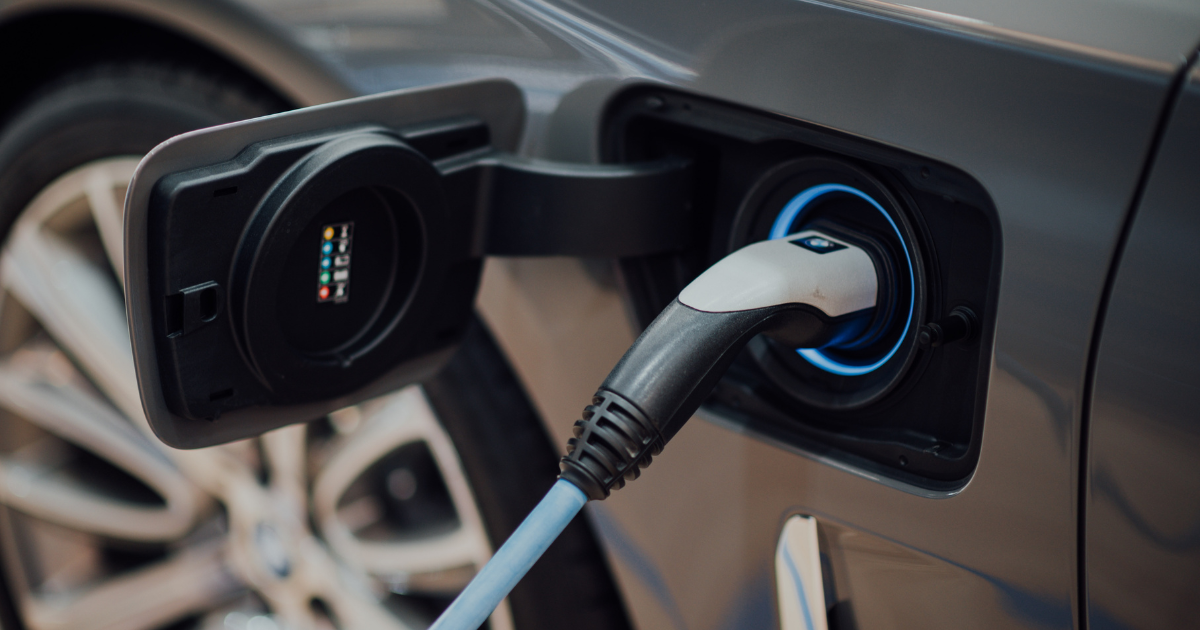
Photo by CHUTTERSNAP on Unsplash
The Electric Vehicle Market Enters the Slow Lane Due to Obstacles
November 7, 2023
Automakers are pulling back on the speed of their ambitious electric vehicle (EV) rollouts due to a complex mix of changing consumer interests, escalating interest rates, persistently high costs, and concerns over the recharging infrastructure.
This pivot points to the reality that the much-anticipated EV revolution is not dead but simply progressing at a slower rate than previously projected by car manufacturers. Consequently, the challenge remains to maintain the steady production of gasoline-powered trucks and SUVs — their profit-generating core — while continuing to channel investments into the EV domain.
General Motors and Ford have put a pause on constructing new EV production facilities and have also downsized their sales goals. Honda has entirely ditched a $5 billion project aimed at producing affordable EVs in collaboration with GM. Top battery manufacturers Panasonic and LG Energy Solution have also echoed concerns over a potential slowdown in the EV market. Tesla, too, has announced a deceleration in its plans to establish an EV production unit in Mexico. In comparison, Toyota has decided to continue expanding, investing an additional $8 billion in its North Carolina-based battery plant.
Despite the pessimistic outlook, EV sales have shown robust growth, outpacing all other segments in the U.S. auto industry. This year, the EV market is set to surpass the landmark figure of 1 million annual sales for the first time. Automobile manufacturers have sold approximately 876,000 electric cars in 2023 thus far, according to Cox Automotive. EV sales increased by 50% in the third quarter compared to the same period in 2022. This figure, however, represents a slight off-pace from the record 71% growth observed from Q3 2021 to Q3 2022.
Cox anticipates that EVs will account for 8% to 9% of U.S. car sales in 2023, a goal already surpassed by manufacturers like BMW (15.6%), Audi (12.7%), Volvo (12.6%), Volkswagen (12.2%), and Mercedes (12%).
Nonetheless, attracting typical car buyers to EVs remains difficult due to high prices, which averaged $50,683 in September, despite a 22% fall from last year. An increase in interest rates, adding to car financing costs, poses an additional hurdle, while the lack of charging stations, with only 141,714 public ones reported in Q2 2023, presents another significant barrier. Leasing has become a popular alternative to navigate these challenges and tax credit limitations.
Other Electric Vehicle Market Factors
Electric car enthusiasts are enjoying significant price cuts, but industry experts warn that manufacturers may risk outstripping market demand. More automakers are offering EVs, leading to aggressive price competition. Still, some drivers prefer hybrid vehicles over EVs, despite lower prices.
The U.S. has witnessed record EV sales in the quarter ending in July, raising concerns about overproduction. Kelly Blue Book reported a 20% price drop from a peak of $66,390 in 2022. In Q2 2023, almost 300,000 new EVs were sold in the U.S.
Tesla’s drastic price cut of up to $13,000 earlier this year prompted other companies like Ford and General Motors to follow suit, leading to cheaper EVs flooding the market.
Many social media users are posting about the problems of charging their EVs and how they want to see more hybrid vehicles instead of pure electric vehicles in the future.
Recent News
Media Giants Depend on Sports As Content Shortages Rise
As Hollywood emerges from last year’s strikes, major media companies are turning to live sports to attract audiences and advertisers. This trend was evident during this year’s Upfront presentations, where media giants showcased their upcoming content and advertising opportunities.
New Trader Joe’s Opens in SF After 10 Years
San Francisco’s Hayes Valley neighborhood welcomed a highly anticipated new addition on May 17, 2024, with the grand opening of a Trader Joe’s at 555 Fulton St., on the corner of Laguna Street. This event marks the end of a decade-long wait for residents who have been eagerly looking forward to a new grocery store in their area.
China’s Property Market Boost: Stocks Surge, Copper Hits Highs
The Chinese government unveiled a comprehensive support package that has sent ripples through financial markets. This initiative includes a slew of measures aimed at stimulating housing demand and addressing the excess inventory burdening developers. The immediate impact was a significant rally in Chinese stocks and a surge in commodity prices, notably copper, which hit record highs.
Mercedes-Benz Workers in Alabama Reject Union
In a pivotal moment for autoworkers in the southern United States, employees at a Mercedes-Benz plant in Alabama have voted against joining the United Auto Workers (UAW) union. The outcome, with 56% of workers voting against unionization and 44% in favor, comes as a significant setback for the UAW’s efforts to expand its influence in the region.

